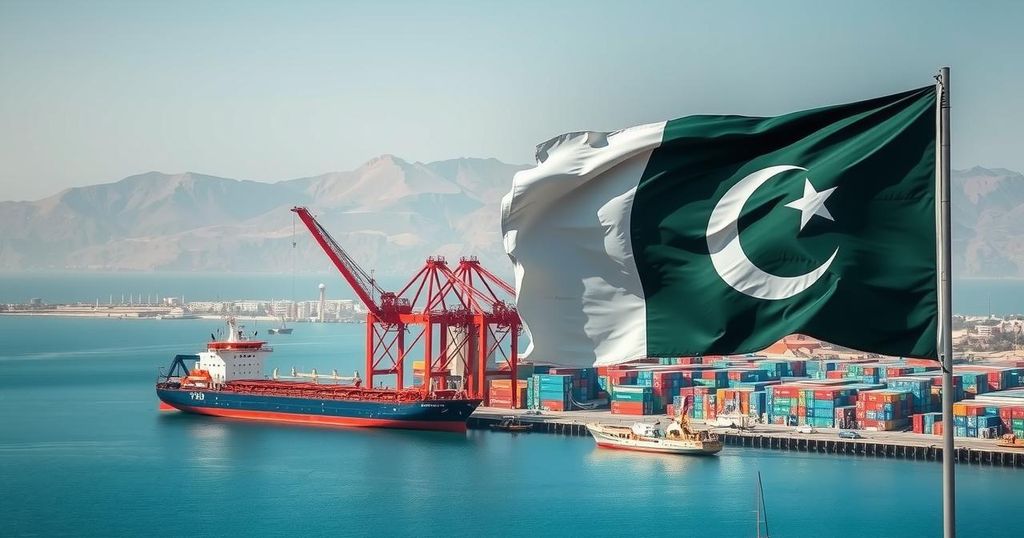Pakistan’s Miscalculations in Gwadar Negotiations with China
Pakistan’s recent bid to secure a nuclear second-strike capability from China as a condition for military support regarding the Gwadar port has backfired, resulting in rejected demands and increased diplomatic strain. Amidst internal turmoil, Islamabad misjudged its negotiating power, risking a fundamental partnership with Beijing that is crucial for its economy and security.
Islamabad’s recent attempts to negotiate with China regarding the Gwadar port have not gone as planned. Pakistan, under the strain of numerous internal challenges including economic difficulties and political instability, misjudged its position in the bilateral discussions. During a high-level meeting, Pakistan made an extraordinary demand: if China wished to establish a military base in Gwadar, it would need to provide Pakistan with a second-strike nuclear capability, a request China swiftly rejected.
This demand for enhanced military provisions from China is particularly troubling for Pakistan, given its heavy reliance on Beijing for economic support and military resources. Moreover, the relationship between the two countries appears to be deteriorating due to various public and private disputes, threatening Pakistan’s long-standing partnership with China. Islamabad’s insistence on complicated military demands puts its support at risk just as public protests over domestic governance escalate.
Pakistan’s expectations have extended beyond military assistance, seeking comprehensive protection from perceived repercussions of handing over Gwadar to China; this includes demands that challenge international treaty obligations. The insistence on a nuclear triad suggests a profound miscalculation that disregards the larger geopolitical implications of such agreements, especially for China, which is a signatory to the Nuclear Non-Proliferation Treaty.
The recent tensions in the China-Pakistan relationship stem from Pakistan’s attempt to leverage its strategic position with the Gwadar port facility. Gwadar holds significant economic and military importance, particularly under the China-Pakistan Economic Corridor initiative. However, Pakistan’s precarious economic situation and internal political turmoil have prompted its leadership to adopt aggressive negotiating tactics, which have historically been counterproductive. The challenge lies in balancing the need for Chinese military support against the need to adhere to international treaties, complicating Pakistan’s strategic moves.
In summary, Pakistan’s recent negotiating approach concerning its military demands from China, particularly involving the Gwadar port, has resulted in a backlash that jeopardizes its long-standing partnership with Beijing. This situation highlights Pakistan’s precarious domestic position and the potential risks of overestimating its bargaining power with a vital ally. As tensions escalate, its need for economic support and military assistance from China becomes increasingly critical.
Original Source: www.ndtv.com








Post Comment